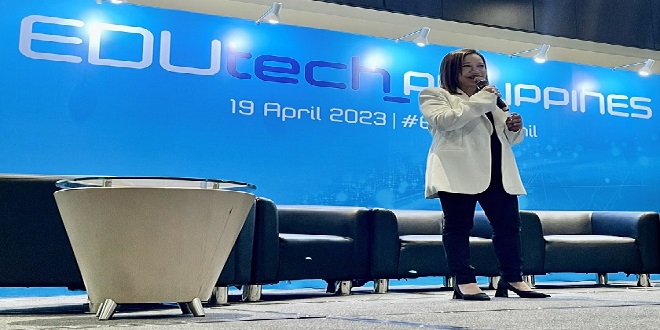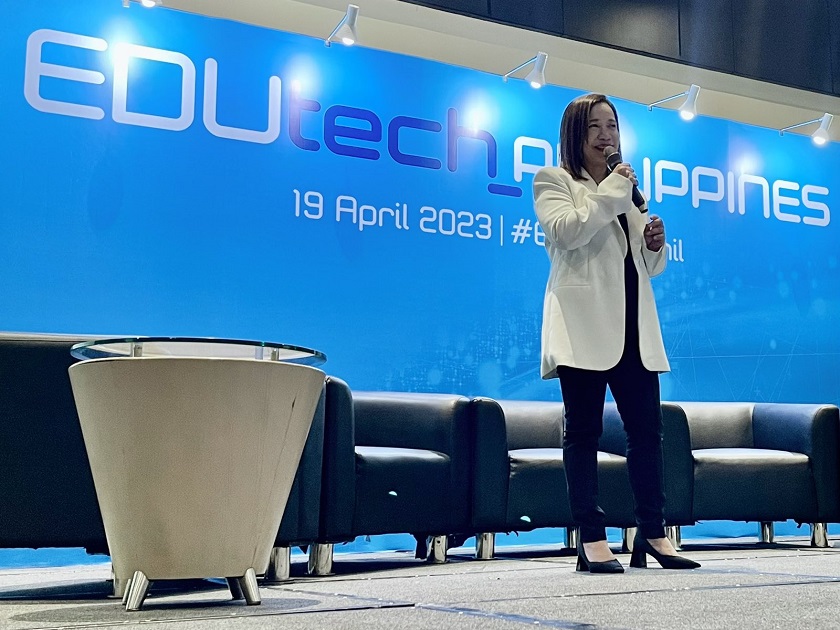
In a rapidly changing world driven by technology and AI, it’s crucial to consider whether our children are adequately prepared for a future that is yet to be fully defined. As advancements continue to reshape our lives, there is a risk of individuals being left behind and missing out on potential opportunities.
To address this concern, it is essential to equip our children with the necessary skills and knowledge to thrive in the real world once they graduate from school. Recognizing the significance of education in shaping future leaders, Google for Education joined forces with Canvas8, a global behavioral insights consultancy, to conduct a comprehensive study on the future of education.

The central focus of their research was to explore how education will evolve to meet the needs of tomorrow. By engaging 94 thought leaders in education, including policy experts, academic researchers, principals, teachers, and edtech leaders from 24 countries worldwide, Google and Canvas8 sought to gain valuable insights.
The collaborative effort resulted in the Google for Education report, which sheds light on global trends concerning Self, School, and System within the context of education. Under the category of Self, the report highlights a growing demand for individuals capable of solving global problems, a shift in the required skill sets for the workforce, and a strong emphasis on adopting a lifelong learning mindset.
Within the realm of School, there is a pressing need to personalize the learning experience, with trends emerging around reimagining learning design and elevating the role of teachers. Lastly, in terms of System, the report identifies trends such as the importance of upgrading learning environments, empowering educators through data-driven insights, and the necessity to reassess student progress.
By uncovering these global trends, the Google for Education report aims to foster a deeper understanding of the evolving landscape of education. It serves as a valuable resource for policymakers, educators, and stakeholders, offering insights and recommendations to better prepare our children for an uncertain future. With the right strategies in place, we can ensure that our education systems equip students with the necessary skills and knowledge to navigate the challenges and opportunities that lie ahead.
Here’s some trends and insights from the report:
1) Shifting to a lifelong learning mindset
Formal education typically ends at adulthood but learning takes place across different contexts or environments beyond one’s school years.
According to Martin Henry, research coordinator at Education International in Belgium, it’s becoming clearer that people need to be able to access education throughout their lives. There is a need to develop that interest in learning and that “learning to learn” ability in students too.
“Lifelong learning is not a new concept, but it does require a shift in the collective mindset,” said Bernadette Nacario, Google Philippines Country Director. “It requires to think of education not as a one-off period, but as an ongoing pursuit.
Lifelong learning as a concept is not limited to students. It applies to everyone. As lifelong learning is largely voluntary, a new learning culture must be cultivated, which instills ongoing motivation to learn.
2) Making learning personal
It’s not just about providing students with targeted, in-the-moment support, but also about making educational content feel relevant to the individual learner.
Personalization aims to increase student engagement and performance by creating responsive learning experiences that take into account each individual learner’s needs and interests. Studies show that when students better relate to what is taught in schools, it can have a positive impact on student engagement, enjoyment and performance.
“When we talk about learning, it’s good to acknowledge that learners differ in so many ways,” said Nacario.
“Advances in AI now make it possible to move at a speed and scale we’ve only imagined. Today, AI is capable of giving students 1:1, in-the-moment feedback on their work. Virtual learning companions will become even more capable of delivering instruction and challenging students to think through problems. In the past, it was completely unimaginable,” she added.
Google is optimistic about the potential for AI and other advanced technologies to empower people, benefit current and future generations, and serve the common good.
3) Re-evaluating student progress
While assessments play a pivotal role in the trajectory of a student’s life, “a lot of learners have capacities which are outside the things that we measure.”
“There’s frustration among parents because we are saying to a child, ‘you are lesser or better,’ but only judging upon a very, very, very small subset of things that are important in life,” said Claire Boonstra, founder ofOperation Education in the Netherlands.
Nacario said, “At Google, we understand that assessments are a challenge. We want to give the teachers the need to effectively assess student progress.”
When teachers create assignments in Google Classroom, they have the ability to provide feedback by leaving comments on submitted assignments, or writing directly on student work. To help streamline the feedback process, Classroom automatically saves a teacher’s most-used feedback to a personalized and automated comment bank. In addition, teachers can draw or write on student work using the Classroom mobile app.
Google firmly believes that learning should be a lifelong pursuit, accessible to all individuals. In today’s digital age, learning takes on various forms, whether it’s finding answers to questions through Google Search or delving into educational content on YouTube. People can now upskill for new roles, explore different fields of work, and pursue their passions with ease.
In fact, the 2022 YouTube Impact Report highlights that a staggering 93% of users rely on YouTube as a valuable platform for gathering information and expanding their knowledge. This statistic underscores the increasing role of technology in providing educational opportunities at our fingertips.
The power of technology enables individuals to follow their interests, explore new subjects, and acquire new skill sets. Google envisions a society where people have the necessary tools, resources, and support to unleash their personal potential, regardless of where they are on their learning journey.
By promoting accessibility and acceptance of lifelong learning, Google aims to empower individuals to continuously grow and develop. Whether it’s through leveraging search engines to find relevant information, engaging with educational content on YouTube, or utilizing various Google tools and platforms, the goal is to provide a seamless learning experience for everyone.
Google’s vision for education goes beyond traditional classrooms, recognizing that learning happens in various contexts and through different mediums. By embracing technology and fostering a culture of continuous learning, individuals can explore their passions, expand their horizons, and acquire new knowledge and skills that will benefit them throughout their lives.
As technology continues to advance, Google remains committed to ensuring that learning opportunities are accessible to all, nurturing a society where personal growth and lifelong learning are not only encouraged but embraced wholeheartedly.







